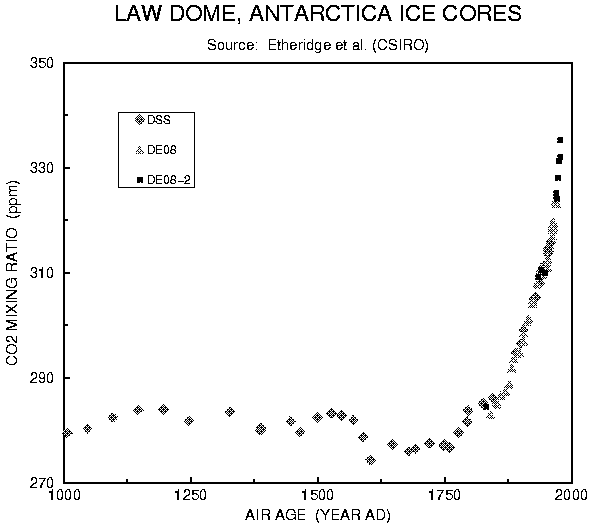 Tweet
Tweet![]() On Ayn Rand, Objectivism, and Climate Change
On Ayn Rand, Objectivism, and Climate Change
Ayn Rand would not “believe” in climate change. She would try to objectively determine whether the theory correctly modeled the data. While it is legitimate to question both the conclusions of scientists and the methodologies by which data are gathered, denying objective validity of the data, which people who call themselves “Objectivists” are doing with respect to climate science, is well, in a word, anti-Objectivist, at least as described by Ayn Rand in 1962.
“The essence of my philosophy” she said, is:
- Metaphysics Objective Reality
- Epistemology Reason
- Ethics Self-interest
- Politics Capitalism
“Translated into simple language, ” she continued, “it would read:
- “Nature, to be commanded, must be obeyed” or “Wishing won’t make it so.”
- “You can’t eat your cake and have it, too.”
- “Man is an end in himself.”
- “Give me liberty or give me death.”
Then she elaborated
“Objectivism, holds that
- Reality exists as an objective absolute—facts are facts, independent of man’s feelings, wishes, hopes or fears.
- Reason (the faculty which identifies and integrates the material provided by man’s senses) is man’s only means of perceiving reality, his only source of knowledge, his only guide to action, and his basic means of survival.
- Man—every man—is an end in himself, not the means to the ends of others. He must exist for his own sake, neither sacrificing himself to others nor sacrificing others to himself. The pursuit of his own rational self-interest and of his own happiness is the highest moral purpose of his life.
- The ideal political-economic system is laissez-faire capitalism. It is a system where men deal with one another, not as victims and executioners, nor as masters and slaves, but as traders, by free, voluntary exchange to mutual benefit. It is a system where no man may obtain any values from others by resorting to physical force, and no man may initiate the use of physical force against others. The government acts only as a policeman that protects man’s rights; it uses physical force only in retaliation and only against those who initiate its use, such as criminals or foreign invaders. In a system of full capitalism, there should be (but, historically, has not yet been) a complete separation of state and economics, in the same way and for the same reasons as the separation of state and church.”
Statements 1 and 2, “Nature, to be commanded, must be obeyed…. Wishing won’t make it so…. Facts are facts, independent of man’s feelings, wishes, hopes or fears…. Reason is man’s only means of perceiving reality, his only source of knowledge, his only guide to action, and his basic means of survival” suggest that the objectivists should be taking note of several observable facts:
 As shown in the graph at left, from Vincent Gray, Atmospheric Carbon Dioxide, here, the concentration of carbon dioxide in the atmosphere has increased from 280 parts per million to 390 ppm since 1800. The mass of carbon dioxide in the atmosphere has increased from about 2.63 trillion tons to about 3.67 trillion tons, an increase of about 1.034 trillion tons. This also corresponds to a decrease of about 282 billion tons in the mass of the earth below the surface, since the carbon in the carbon dioxide was taken from carbon sequestered below the surface in coal mines, oil wells, and gas wells.
As shown in the graph at left, from Vincent Gray, Atmospheric Carbon Dioxide, here, the concentration of carbon dioxide in the atmosphere has increased from 280 parts per million to 390 ppm since 1800. The mass of carbon dioxide in the atmosphere has increased from about 2.63 trillion tons to about 3.67 trillion tons, an increase of about 1.034 trillion tons. This also corresponds to a decrease of about 282 billion tons in the mass of the earth below the surface, since the carbon in the carbon dioxide was taken from carbon sequestered below the surface in coal mines, oil wells, and gas wells.
While 211 years is one year longer than three times the Biblically defined human lifespan of three score and ten, it is a small fraction of the 5,600 years of recorded history, and the 4.5 billion years the U. S. Geological Survey tells us the earth has been in existence (here).
The non-magic number is 350 ppm carbon dioxide in the atmosphere. Above that we will see dramatic changes in climate; below that, the climate in which humans and other contemporaneous species evolved (click here).
The objectivists ought look at this increase of carbon dioxide in the atmosphere and shift from solid, liquid, and gaseous carbon below the surface into atmospheric carbon dioxide in the 211 years, and ask what it means for the earth and the ecologic systems. Will earth become warmer or cooler, or neither? Will there be more storms or fewer? Will the carbon dioxide hold more heat and allow the atmosphere to hold more water vapor? Will this result in more storms? Will any storms be stronger or weaker? Will rivers like the Missouri and the Mississippi flood? Will there be heavier snowfalls? What are the effects of shifting 282 billion tons of mass from below the surface into the atmosphere? And what are the effects of combining 753 billion tons of atmospheric oxygen with 282 billion tons of subsurface carbon in order to create this 941 billion tons of carbon dioxide?
Dramatically increasing atmospheric carbon dioxide, as we have done, from 280 ppm to 390 ppm, may have no effect. But believing they have zero effects, and scientifically proving they have zero effects are two different things. Rand would say “We Must KNOW! We may not simply believe!”